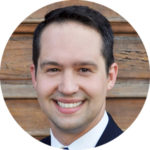Philosophy, my graduate field of study, has taken hits in recent months. Who knew philosophers would be pitted against welders and subjected to assault from pop culture personalities? I chose philosophy well before such hubbub, but now seems as good a time as any to revisit why I did such a thing. Why did I, having been in the employ of a Southern Baptist entity for over a decade, choose to study philosophy?
1. Worldview reconnaissance
At the time I was considering graduate programs, I sought counsel from a host of people I trust. My interest was to continue work at the intersection of Christianity and the public square, with the nuance that I have particular interest in doing so directly among people who don’t necessarily share a Christian worldview. American culture continues to become more diverse in every way imaginable: religiously, ethnically, ideologically, politically. It is clear, then, that American Christians will increasingly interact with people who have no Christian memory. This is true whether you coach little league or petition Congress.
Most of the ideas the ERLC contends with in the public policy realm emanate from some kind of philosophy. This is true whether elected officials, government staff and advocacy groups are aware of it or not. Some of those ideas harmonize with Christian ethics while others—many others—do not. Thus, I decided I wanted a glimpse “behind the curtain” to see where these policy ideas come from. Consider it a kind of “worldview reconnaissance.”
2. Professional skills
Once I had some clarity about the theme of my professional interests, Barrett Duke suggested I consider philosophy. He said it would give me access to the ideas that become worldviews and would help me develop the inherent skill set necessary for worldview engagement, like argumentation and writing. He was correct. (And wow, was there writing.) As a bonus, the program forced me to write more precisely. (Yes, I’m a work in progress.) Further, the task of philosophy made me comfortable discussing both big, oversimplified concepts and nuanced specifics. Mainly, it helped recognize the difference between the two and learn to communicate appropriately.
3. Appreciation for original sources
During my particular track of study, I spent a good deal of time reading the likes of David Hume, Adam Smith, Immanuel Kant and John Rawls. I was also exposed to Jewish and Islamic scholars, along with some Christian authors I’d not previously read. The writings of all of the above influence our current public policy debates in one way or another, though well “upstream” from legislation and political pundits. I learned that a philosopher’s popular reputation is often different than the actual text. This led to a greater particular appreciation for engaging original sources.
For example, David Hume supposedly dispelled with rational belief in miracles. But a reading of On Miracles reveals he didn’t accomplish that task, at least not in that essay. Immanuel Kant supposedly disproved the existence of God. Yet a reading of Critique of Pure Reason shows that he too still believed, with “certainty,” in a deity. But I didn’t learn any of that from a wiki entry. I had to read the original texts.
I have since found that requesting a fair reading of original texts resonates in debates over ethics and policy. Whether responding to questions about the Bible, an SBC resolution or an ERLC policy position, I find it immensely useful to simply say, “Let’s look at the original source.” This cools what otherwise might be a contentious conversation and often corrects the record.
4. Confidence in my faith
In my program of study I was a minority with regard to worldview, and that was OK. Given a firm foundation in Scripture in advance, having your beliefs challenged can be a fruitful exercise. It helped me refine how I communicate about my faith. It provided confidence that the historic, orthodox Christian faith can withstand philosophical scrutiny. A familiarity with the likes of C.S. Lewis, Francis Schaeffer and R.C. Sproul helped in recognizing presuppositions in philosophical arguments. (However, while such familiarity with Christian thinkers helps, it does not exempt a student from the deep-in-the-weeds work of academic philosophy.)
It became evident that secular philosophies have no substantial refutation of religious belief in general, nor Christianity in particular. No philosopher to date has found any silver bullet that takes down all religious belief, though many assume they have. I found many fellow students hadn’t actually read much of the Bible, and few approach it with even a neutral academic posture they would other ancient texts. There just isn’t anything I’ve seen that provides the materialist worldview a one-two punch against Christianity.
5. A focus on Christ
However logical, creative or absurd a philosophy, even a philosopher must do something with the historic person of Jesus of Nazareth. C.S. Lewis’ trilemma has been accused by some philosophers of failing to “prove” Jesus is God. But that is to misunderstand the task of the trilemma. The only thing the trilemma accomplishes is to remove the fourth option, the claim that Jesus was merely a “great moral teacher.” In this philosophical exercise, He might still be a lunatic or liar. But if we affirm the existence of the man called Jesus (a question of history, not science or philosophy), and we read the Bible (the most original source we have about him), then only three options remain: He is either who he says he is (Lord), or he is a liar or lunatic.
Studying philosophy focused me on the person of Christ because I quickly saw how human efforts are, still, “striving after wind,” and “if Christ has not been raised your faith is futile and you are still in your sins” (Eccl. 1:17, 1 Cor. 15:14). And by God’s grace, I still call him Lord, even after a philosophy degree.










